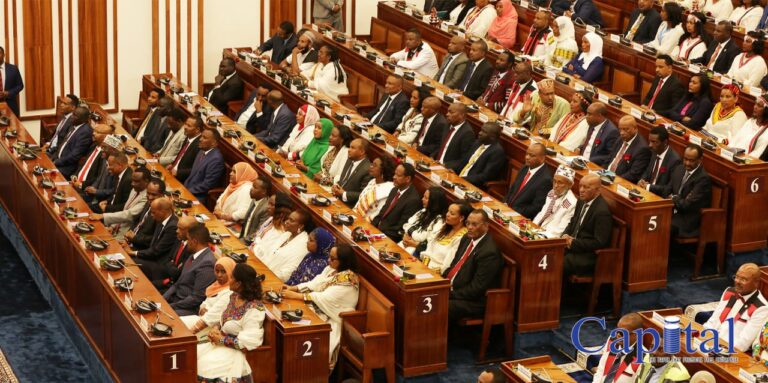Under its five-year plan, the emerging corporate giant OVID Holding aims to engage in both continental building projects and the marine industry.
The conglomerate, which has received approval for its real estate and construction investments, has unveiled a five-year investment plan valued at USD 20 billion. This plan encompasses mining, housing, construction, industry, and agricultural developments, along with several joint ventures to strengthen its operations.
According to CEO Yonas Tadesse, the five pillars of the Vision 2030 strategy include social development, economics, technology and innovation, and strategic partnerships.
Yonas Woldeyes, the conglomerate’s legal advisor, asserts that the Holding is rapidly expanding with a unique business strategy.
He states that the Holding comprises several active businesses participating in various sectors to expedite the company’s initiatives.

The CEO has set a goal to increase the number of OVID Holding’s 47 supply chain subsidiaries during this strategic period. He indicated that the Holding plans to incorporate several new companies over the next five years.
At the Vision 2030 launch ceremony held at the Gelan Gura housing site on the southeastern edge of Addis Ababa, he stated, “Agriculture, mining, hotel and tourism, public transport, and logistics are among the new businesses the conglomerate will pursue.”
The legal advisor added that the forthcoming logistics and marine division of OVID Trade House aims to establish a logistics business, either independently or through collaboration.
“We intend to operate vessels under the maritime business,” Yonas Woldeyes told Capital.
The company relies heavily on imports for its operations, including significant amounts of construction materials, manufacturing inputs, and other items.
Yonas revealed that the logistics company has already been established and has recruited a qualified foreign leader to assist in developing the vessel operating firm.
If successful, it would become the second vessel operator in the nation, following the state-owned Ethiopian Shipping and Logistics.
According to Yonas Tadesse, one of the main objectives for the next five years is to expand into foreign markets. He stated, “We aim to grow our international business by 30 percent under the five-year strategy.”
The Legal Advisor elaborated on the CEO’s comments, saying, “We are working on a road project designed to connect the southern tip of Africa to the north.”
In addition to the road project, the conglomerate’s construction division plans to collaborate with others on housing projects across African nations.
Currently, OVID Real Estate is transitioning into a developer rather than a direct homebuilder.
The Legal Advisor explained, “As a housing developer, our role will be to supervise contractors building homes under OVID.”
He noted that OVID Construction has partnered with approximately 10 recently formed construction companies to execute housing projects in Gelan Gura and other locations under the OVID brand.
According to Yonas Woldeyes, these construction companies have been established with the goal of managing manageable projects, ensuring timely completion.
The real estate division has also received a plot from the Addis Ababa City Administration to build residential homes through a public-private partnership (PPP) scheme.
According to the CEO, the housing plan includes the construction of 120,000 homes over the next five years, with 90,000 of these located in Gelan Gura, which spans over 400,000 square meters.
The City Administration will own 30% of the homes in the Gelan housing project, which operates under a public-private partnership (PPP) strategy.
The CEO of OVID Holding stated that the company’s goal is to capture 40% of the real estate market by 2030.
In recent years, the conglomerate’s building division has achieved notable success in both speed and quality.
One of the main components developed in the housing program is the facilitation of a fund. To support this, a mortgage bank is being established. The CEO also mentioned that the company is in the process of setting up a microfinance institution to assist homebuyers in obtaining financing.
Over the next five years, the real estate portfolio is projected to spend USD 15 billion, according to Samson Merid, CEO of OVID Global Solution, a division of the holding company.
He informed the media that “five billion dollars will be needed for global, regional, and investment expansion and partnership” over the same period.
As part of the holding CEO’s five-year strategy, approximately 25 memorandums of understanding and partnerships will be established with potential collaborators. The 2030 plan aims to generate one million new jobs.









